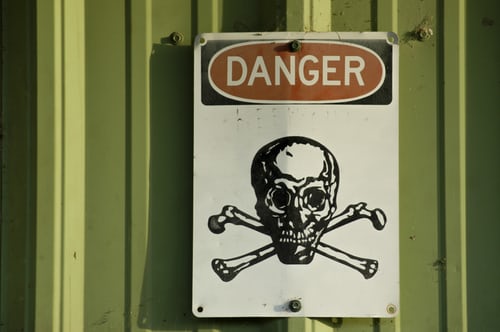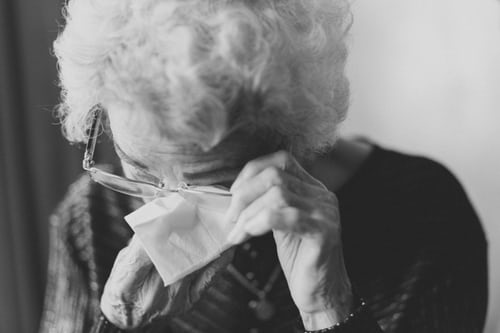A LOT OF THINGS CAN HAMPER OR CURTAIL grieving. One is the fear of and attempt to reject your feelings. Another is the use of psychopharmaceutical drugs to dampen the emotions and pain. We’ll briefly cover both on today’s post.

The danger of trying to reject your feelings and emotions—
Whether or not the attempted rejection comes from you, a domineering and opinionated family member or well-meaning friend, trying to reject or dampen your feelings can seriously derail your grieving.
The problem often lies with someone else trying to fix your feelings. Make them better. “Help” you get past them too soon. Or manipulate and change what feelings you are having.
Don’t do it to yourself and don’t let someone else try to do it to you. If they do try, lessen or curtail your interactions with them until you are strong enough to lay down boundaries or respect.
I can’t stress enough how much you need to respect yourself, your unique relationship with the deceased person, and the emotions and feelings unleashed during the grieving process.
Acknowledge those feelings, address them, understand where they’re coming from and why they’re there. They’ll come out now or later in some fashion. If you try to tamp them down, ignore or reject them, (especially the negative ones), they’re more likely to rear their ugly and disabling heads in other areas of your life—like relationships and physical and emotional health.
You want to be fully healthy—emotionally, physically and spiritually. You want to live again. Thrive!

The dangers of psychopharmaceutical drugs—
While using anti-depressants or anti-anxiety drugs might seem like a good course of action, and may be necessary for one’s sanity and being able to sleep and hold it all together in the early stages of grief, be cautious when considering or accepting a prescription for them.
First, some come with a host of side effects, one of which is suicidal thoughts. And that’s often what we’re trying to avoid with anti-depressant medication.
They can become emotionally habit-forming. While they’re not addictive in ways substances like methamphetamine, heroin or alcohol are addictive, Elizabeth Wurtzel notes in an Addiction Center online article that:
“People can still develop a physical dependence on the antidepressants. Individuals with depression are also more likely to abuse other drugs.”
Another danger with psychopharmaceutical drug intervention is the drugs can mask a person’s normal, natural responses to grief. Drug-free grieving may give the griever a better opportunity to feel his or her feelings, deal with them and complete the grieving process sooner and more completely and effectively.
So please don’t be in a hurry to ask your doctor for an anti-depressant prescription. Try the natural approach first. If you find the pain grief too debilitating, then seek counseling or pharmaceuticals.
NEXT WEEK, we’ll look at the fallacy of protecting someone from grief, misunderstandings of reactions to death, and the benefits of talking about death.
Until then,
Remember that grief is not easy, but there are concrete steps we can take to make it easier, and survive it and thrive after it!
Blessings,
Andrea
“Beloved, I pray that you prosper in all things and be in health, just as your soul prospers” (3 John).
Andrea Arthur Owan, M.S., A.T., R., is a fitness pro, speaker, award-winning inspirational writer, memoirist, and senior-ordained chaplain (IFOC). She helps people thrive physically, emotionally, and spiritually, and recover from grief, loss and trauma.
